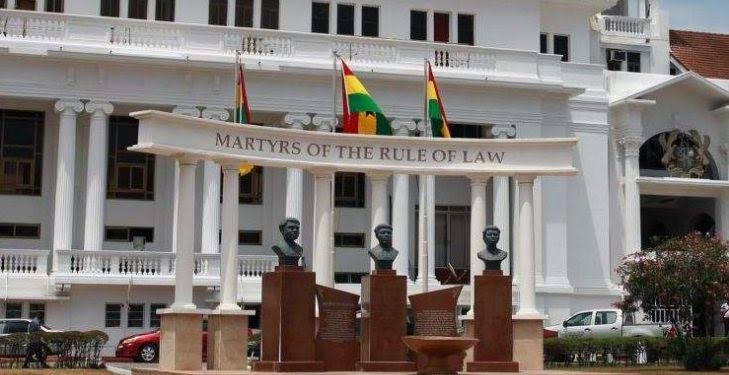Ghana’s Supreme Court has dismissed a lawsuit aimed at overturning the law that criminalizes homosexuality in the country.
In a unanimous decision, a seven-member panel of justices, led by Chief Justice Imoro Tanko, ruled that the “mere fact that certain countries have legalised the practice does not mean it should be legalised in Ghana”.
The court upheld the existing law, which outlaws same-sex relationships, citing the need for Ghana to maintain its own legal standards and cultural values.
“The law’s utility thus becomes waste if it is just the transportation of alien cultural values and ideas which have no foundation at all with the peculiar social factors in our legal system,” the court held.
“Therefore, any sexual intercourse with a person or animal other than through the means of penetration with a penis into the female vagina is unnatural and criminalised under Section 104 of Act 29.
Such situations include sodomy and bestiality, which is carnally knowing an animal or where a person allows an animal to carnally know that person.”
Prince Obiri-Korang, a legal practitioner, had sought to challenge the constitutionality of laws criminalising homosexuals and LGBT individuals.
Obiri-Korang argued that section 104(1)(b) of Act 29 violated the right to privacy and liberty as respectively provided under Article 18(2) and 14(1) of the Ghana 1992 Constitution.
He based his argument on the “right to privacy, consent between adults, and freedom of choice, in so far as no one is forced into the act or is hurt as a result”.
The lawyer told the supreme court that “unnatural carnal knowledge happens in a private context or place and is beyond the view of the public; hence it ought not to be criminal”.
He further argued that if the act is undertaken between consenting adults in a particular association or relationship, it should be unacceptable for the law to interfere, adding that a person should be free to choose how to conduct his or her life.
However, the court said the arguments of the plaintiff were based on laws of other countries not applicable in Ghana.
Dismissing the plaintiff’s submission on the right to privacy, the apex court held that such an argument could mean that the state should not criminalise certain actions that took place in private but were injurious to the public.
The court held that the right to privacy was not absolute but subject to certain restrictions such as public safety, the economic well-being of the country, and public morality.
In a concurring opinion, Yonny Kulendi, a justice of the court of appeal, held that Ghana cannot be pressured into adopting foreign laws.



